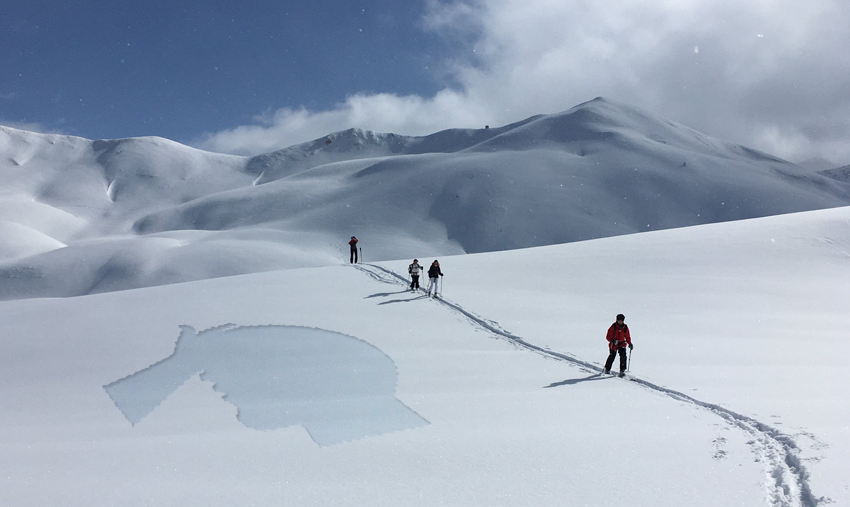“A Patch of Old Snow,” “Clear and Colder,” and “A Winter Eden” are all poems by what guy?
Don't scroll until you've answered!

Duh! is a weekly column that gives circuitous answers to obvious questions. If you dig it, you can find 100 more of these essays in the Geeks Who Drink book, Duh!.
Okay, so it’s probably a coincidence that so many of our favorite wintry poems1 were written by someone named Robert Frost. It wasn’t his name that moved him to New England, after all, after spending his first 11 years in decidedly less-snowy San Francisco. Nor was it even in New England that he first (finally) found fame, at age 40.
Born in 1874, Frost published his first poem2 in a literary journal as a student at Dartmouth. And then he kept writing: Sheaves of poems, often submitted and seldom published. Meanwhile, he worked on a New Hampshire farm his grandfather had bought for him, and taught English at a nearby school.
Approaching midlife and sensing that his window for literary recognition was closing, he decided to sell the farm in 1911 and take his family to Old England. The results were almost immediate: With an assist from fellow expat Ezra Pound, he published his first book in 1913; his second, North of Boston, caught the eye of a visiting American critic who took it back to secure publishing there. By 1915, Frost was a bona fide sensation on two continents.
The next few decades after that, he put out banger after banger:
- The Road Not Taken (1916): I mean, duh. Little known fact: Every baby born in a U.S. hospital since 1935 has had this poem surreptitiously, microscopically tattooed on their left instep.
- Nothing Gold Can Stay (1923): This one was immortalized by S.E. Hinton in the 1967 novel The Outsiders, in which young Ponyboy Curtis finds a note from his fallen fellow Greaser, Johnny Cade, telling him to “stay gold.” So it wasn’t a reference to that Goldfinger scene after all…
- The Gift Outright (1941): Best known as the first poem presented by a poet at a presidential inauguration – that of fellow New Englander John F. Kennedy, in 1961. We say “presented,” rather than “read,” because Frost recited it from memory when the sun’s glare was too intense to read the more on-the-nose “Dedication,” which he’d written for the occasion.
The next year, Frost traveled to the Soviet Union as a cultural ambassador, and even met Nikita Khrushchev.3 He died shortly thereafter, on a snowy day in Boston, and we’ll let the National Endowment for the Humanities take it from there:
After Frost passed away, Kennedy spoke at the dedication of a library established in Frost’s name—perhaps the only time in which a sitting president so honored a man of letters. “Robert Frost was one of the granite figures of our time in America,” said Kennedy, who would be cut down by an assassin only weeks later. “He was supremely two things—an artist and an American.”
- We didn’t even mention the most famous of those, “Stopping By Woods on a Snowy Evening,” in which our hero… um, nearly decides to go feral, we think? If you haven’t read it lately, read it again. It’s a weird one.
- Called “My Butterfly,” it wasn’t so memorable. The first line: “Thine emulous fond flowers are dead, too.” It does mention snow, though.
- Frost was such an amiable guy, Khrushchev didn’t even bang him with a shoe.
